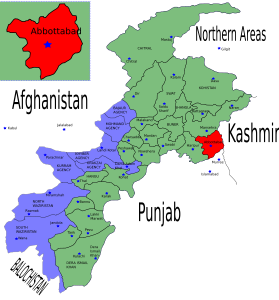Publisher’s Shock and Awe
As I mentioned yesterday, the Pentagon has now gotten a copy of Osama bin Laden kill team member Matt Bissonnette’s book, No Easy Day. They’re reviewing it for classified information.
So today, the publisher announced that it has almost doubled its print run–from 300,000 to 575,000–and moved up publication a week.
In response to a crush of media attention, criticism and consumers clamoring to buy the book, the publisher behind the first-hand account of the Navy SEALs raid that killed Osama bin Laden has decided to move up the release date to next Tuesday.
Dutton, the imprint of Penguin that acquired the book in secret, said that “No Easy Day,” which will appear under the pseudonym Mark Owen, will go on sale Sept. 4, a week ahead of the planned date, Sept. 11.
“The publisher now feels it is important to put ‘No Easy Day’ on sale and let the book speak for itself,” Dutton said in a statement.
[snip]
Christine Ball, a spokeswoman for Dutton, also said on Tuesday that the publisher had increased the planned print run to 575,000 hardcover copies from the original total, 300,000.
And while Dutton claims these moves are simply a response to the media attention, I’m guessing they’re primarily designed to make it harder for DOD to affect publication of the book.
Remember what happened to Anthony Shaffer when the Defense Intelligence Agency found sensitive information in his Operation Dark Heart after it had already been printed.
Defense Department officials are negotiating to buy and destroy all 10,000 copies of the first printing of an Afghan war memoir they say contains intelligence secrets, according to two people familiar with the dispute.
[snip]
Release of the book “could reasonably be expected to cause serious damage to national security,” Lt. Gen. Ronald L. Burgess Jr., the D.I.A. director, wrote in an Aug. 6 memorandum. He said reviewers at the Central Intelligence Agency, National Security Agency and United States Special Operations Command had all found classified information in the manuscript.
In that case, DOD paid $47,300 to take 200 passages out of fewer than 10,000 copies.
The upshot was that the Pentagon paid $47,300 in taxpayer money for the 9,500 books that constituted almost the entire first print run of the book and had the volumes destroyed Sept. 20, while the publisher, Thomas Dunne Books, an imprint of St. Martin’s Press, issued a second edition Sept. 24 with roughly 200 words or passages blacked out.
To do the equivalent now–particularly with the doubled print run–would be quite a bit more expensive. And DOD now has just a week to decide what, if anything, they’re going to do about someone completely bypassing their censorship system.


